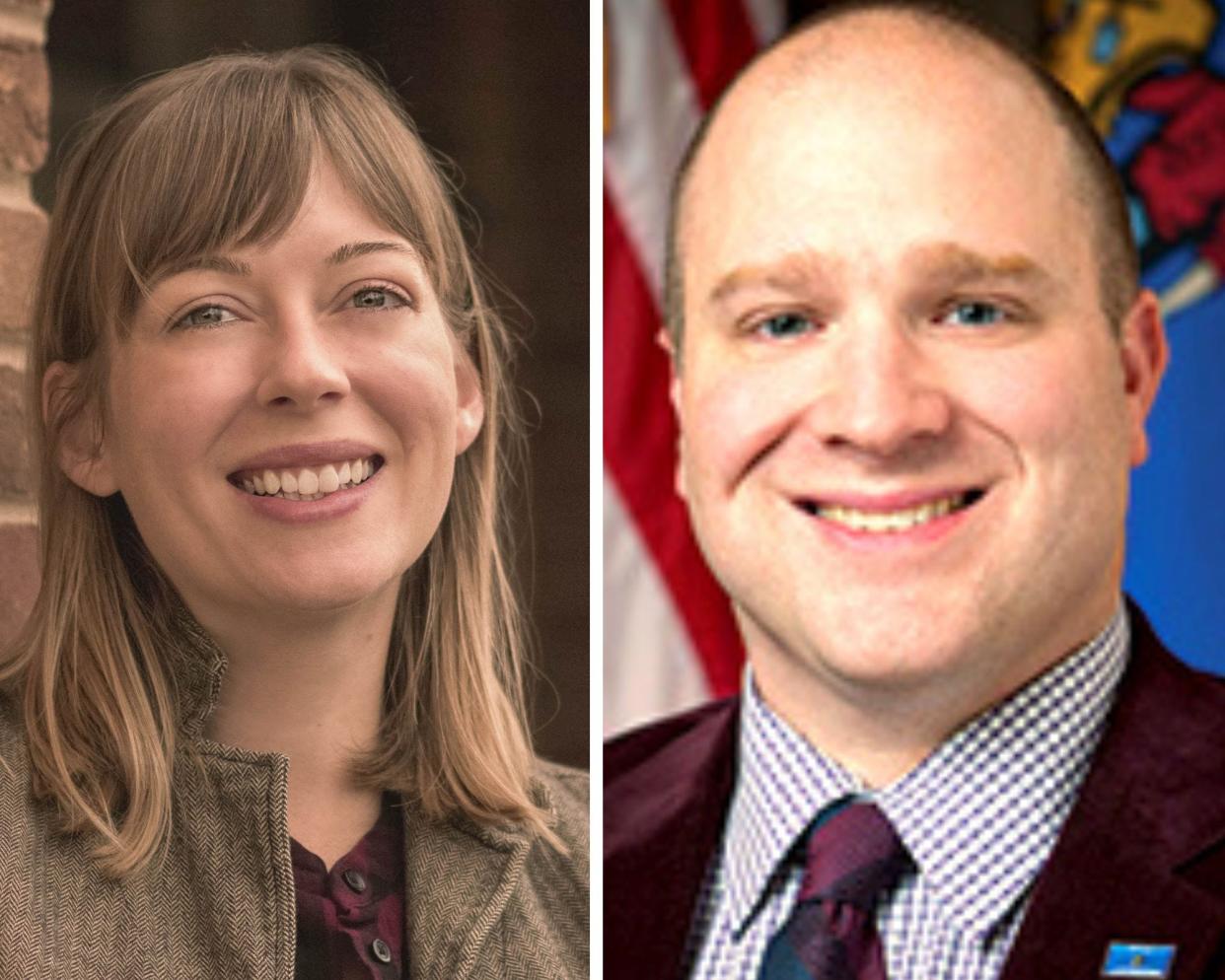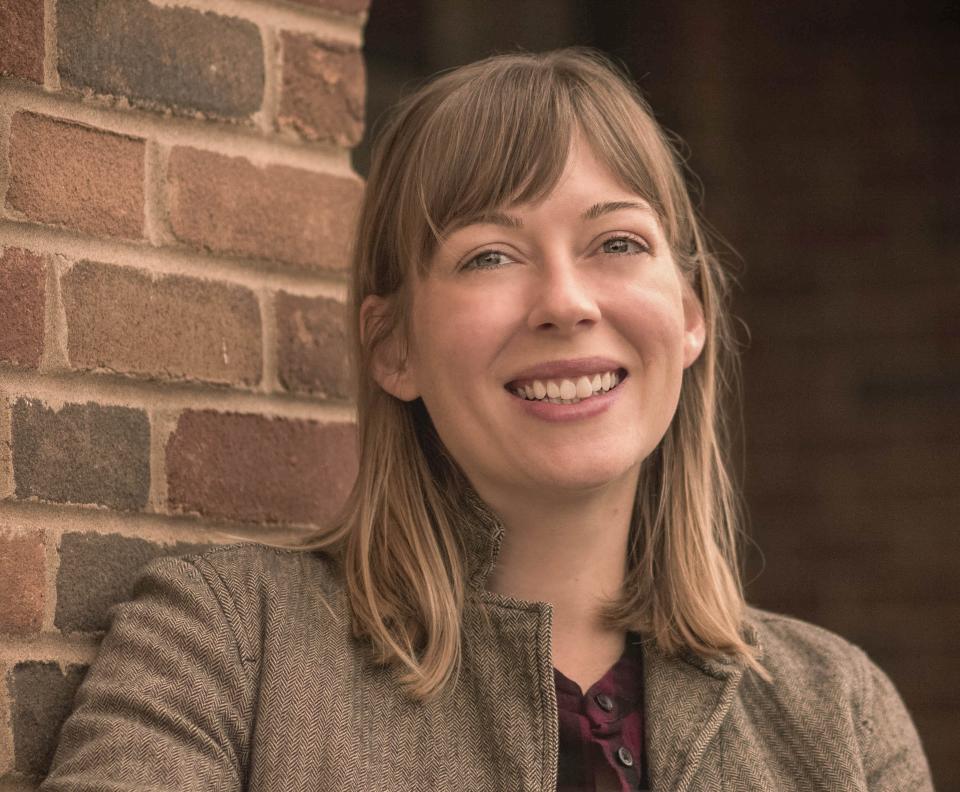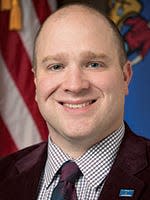Meet Wisconsin Assembly District 2 candidates Shae Sortwell and Renee Gasch, facing off in the Nov. 8 election

- Oops!Something went wrong.Please try again later.
State Rep. Shae Sortwell and Democratic challenger Renee Gasch are facing off in the Nov. 8 election for the Wisconsin Assembly District 2 seat.
Republican incumbent Sortwell has held the position since 2019.
District 2 includes large portions of southern Brown County, including most of the city of De Pere, and northern Manitowoc County, including the city of Two Rivers.
The Herald Times Reporter asked each candidate to fill out a questionnaire before the election explaining why they are running and their positions on issues. Some responses were lightly edited for clarity and brevity.
For information about registering to vote and polling locations, visit the MyVote Wisconsin website at myvote.wi.gov/en-us.
Renee Gasch

Age: 40
Occupation: Environmentalist
Highest level of education: Agricultural education, master’s degree
Relevant experience: I am a community organizer and environmentalist from De Pere. I serve on our Sustainability Commission helping my community restore pollinator habitat, reduce carbon emissions and plan for the future. I work in sustainable agriculture supporting farmers in mitigating climate change, and I run a small business writing for documentary films. I’ve also served on Gov. Tony Evers’ Student Debt Task Force studying the effects of rising student debt on Wisconsin’s workforce.
Shae Sortwell

Age: 37
Occupation: Truck driver, legislator
Highest level of education: Bachelor’s degree
Relevant experience: Wrote seven bipartisan bills passed into law this session including a harbor dredging bill for Two Rivers, a health care privacy protection bill, capital loss deduction bill, 911 grant bill and EpiPen access bill.
Why are you running for this office?
Gasch: I am running to restore the freedom for all people to seek reproductive health care in Wisconsin. I want to expand health care for working families by making services more available and affordable. I am focused on lowering costs of living in northeast Wisconsin and making our state safer for everyone.
Sortwell: Government inflation is stealing from the people. Crime is out of control in Milwaukee and Gov. Evers is releasing hundreds of murderers and child rapists. We need to start rewarding hard work and obeying the law, not law-breaking and idleness.
Why are you the best candidate in this race?
Gasch: My roots run deep here. I was raised in rural northeast Wisconsin and learned the value of hard work on a dairy farm. I have the experience to lead our district on agriculture and energy policy, and I’m committed to the issues that will help our communities thrive: public education, health care and safety.
Sortwell: I have proven to my constituents that I am happy to work across the aisle when I can, that I’ll stand up to my own party if I need to, and I will never sacrifice their God-given, constitutional rights. I have always fought for you.
What are residents telling you are their greatest concerns, and how would you address them?
Gasch: The most consistent issue that comes up at the doors is democracy. Voters are concerned about my opponent’s efforts to decertify the 2020 election results, and they want new leadership who will respect election staff and poll workers. Health care and education come up frequently as well. Voters are adamant about restoring the right for women to make decisions about their own bodies and health care. They also want more affordable child care and housing options and to see our neighborhood kids thrive in safe, fully funded schools.
Sortwell: My constituents are concerned about rising costs and rising crime.
On the cost side, I will propose a bill to freeze a senior’s property taxes at retirement. I will fight for laws that reward workers and not people who choose not to work. I will support bills that lower health care costs.
On the crime side, I will fight for increased funding for our police and court system. I have the support of the Milwaukee Police Association, which has been abandoned by our governor and their local officials. I will support those who defend us.
What is the most pressing issue facing Wisconsin, and how would you address it?
Gasch: Lowering costs of living for working families is the most pressing issue in Wisconsin. The average cost of a basic two-bedroom apartment in Assembly District 2 was $958 a month this summer. On top of housing, child care costs Wisconsin families roughly $15,000 a year per child. Fuel costs fell $1.30 a gallon this summer, but they need to come down more before winter. I am focused on policies that will lower costs for Wisconsinites, such as initiatives that will add mixed-income housing, universal 3K and 4K child care programs, and locally produced renewable energy.
Sortwell: I think my constituents hit the nail right on the head. Rising costs from Biden-inflation and rising crime from soft on crime politicians like Evers who let rioters burn Kenosha, trash the Capitol and beat a state senator.
In addition to those huge issues, we also need to give parents more control over their children’s education, re-work and increase funding for our local municipalities, and reign in executive power so no governor can ever tell workers they are non-essential ever again. Every job is essential to the person bringing home the paycheck.
Would you vote to repeal Wisconsin’s ban on abortions, or to add exemptions to the law (such as for rape and incest victims)? Please explain your position.
Gasch: Yes. The government should stay out of our OBGYN exam rooms. Trained health care professionals and patients themselves are the people best positioned to make decisions about their health care. The best way to prevent abortions is to expand access to long-term contraception and reproductive health care services across the state. We should empower the people of Wisconsin to make good decisions about their lives, not restrict their rights to medications, services and information.
Sortwell: This is actually a pretty complex issue right now because we don’t know where we will legally end up yet. Attorney General Kaul claims the current abortion law is in conflict with other state laws and he has filed a lawsuit to override that law. Presuming he is successful in that lawsuit, then the issue will return to the Legislature, and we will need to decide what to do. I presume (haven’t had this conversation with colleagues yet) that the consensus view of the Legislature will be disallowing abortions except with preserving life, rape and incest as exceptions.
Would you support policy initiatives to address the impact of climate change in Wisconsin? If so, what would be your priorities? If not, please explain.
Gasch: Yes. Wisconsin farmers depend on communities joining together to act on climate change. I would prioritize the resilience of local farmers, making sure they have the support they need to weather more frequent and severe storms. I would also prioritize investments into renewable energy projects in our district. Assembly District 2 is one of the leading producers of renewable energy in Wisconsin, and I want to build on our clean energy foundation and generate more local energy jobs to power the region — built by well-paid, highly trained union labor.
Sortwell: We can be responsible with our environment while not compromising our economy, like I did with the Lake Michigan and Lake Superior dredging bill.
How should state government help Wisconsin residents combat the effects of inflation?
Gasch: Wisconsin has a lot of power to build our workforce to meet the demand of our strong economy. Building our workforce will help businesses stabilize wages and bring costs down. We can add more child care and elder care options so working families have the support they need to get to work. Wisconsin also has the power to lower health care costs by adding a BadgerCare public option that people can buy at an affordable price on the Healthcare Marketplace. And we must expand local renewable energy production in our state. Diversifying energy sources and shortening energy supply chains will lower fuel costs for working families.
Sortwell: We should have ended the extra payments given to people to not work, but Evers vetoed that. We should not have spent all the federal relief money so quickly (was supposed to last a couple more years) but Evers enjoyed playing Santa Claus with it while vetoing bills that would have spent it on common-sense ideas such as law enforcement and replacing lead water pipes.
We can fight inflation by getting people back to work rather than paying people not to work. This will rebalance the supply chain and reduce inflation.
What should Wisconsin do to protect the democratic process and ensure the integrity of its elections?
Gasch: Wisconsin voters have been gerrymandered by politicians who draw their own districts to protect their own seats. We should adopt a nonpartisan process for drawing districts so that election maps are fairer and less confusing to voters. We should also streamline the voting process by making voter registration automatic and expanding absentee voting options to better serve people with disabilities. All people deserve easy, understandable access to the ballot box, and every eligible voter deserves to have their ballot counted fairly and respectfully.
Sortwell: We should not allow partisan activists to run our elections as happened in Green Bay. When the professional, non-partisan clerk said her staff was in tears because they weren't allowed to do their jobs by the activist mayor and his outsider cronies, it raises a serious concern by anyone considering it honestly. It is time to put our clerks in charge of elections to be held impartially and in a nonpartisan fashion with full transparency. We should pass laws that hold accountable those who would interfere with our democratic process.
Are the public schools in your district properly funded? Please explain your position.
Gasch: Many schools in Assembly District 2 have expanding enrollment and aging infrastructure, and all schools are short-staffed and dealing with burnout from the pandemic. We need to fully fund our public schools to make sure our kids have the very best learning environments possible. I want to see us add funding for early childhood education so that all families in our district have the option to send their kids to a public 3K and 4K program. To pay for these priorities, we need to sunset the experimental private school voucher program and dedicate budget surplus money to public schools.
Sortwell: Overall, our school funding is doing fine. We will need to do some backfilling in the next budget to account for federal money that is ending. And I believe we will continue to have some additional resources put toward school mental health and special-needs concerns and we will likely have a cost-of-iving increase as well. We should also look toward tying additional funding toward improved educational outcomes of our students.
Contact Alisa Schafer at aschafer@gannett.com. Follow her on Twitter at @AlisaMSchafer.
This article originally appeared on Manitowoc Herald Times Reporter: Wisconsin Assembly District 2 candidates Sortwell, Gasch on the issues

